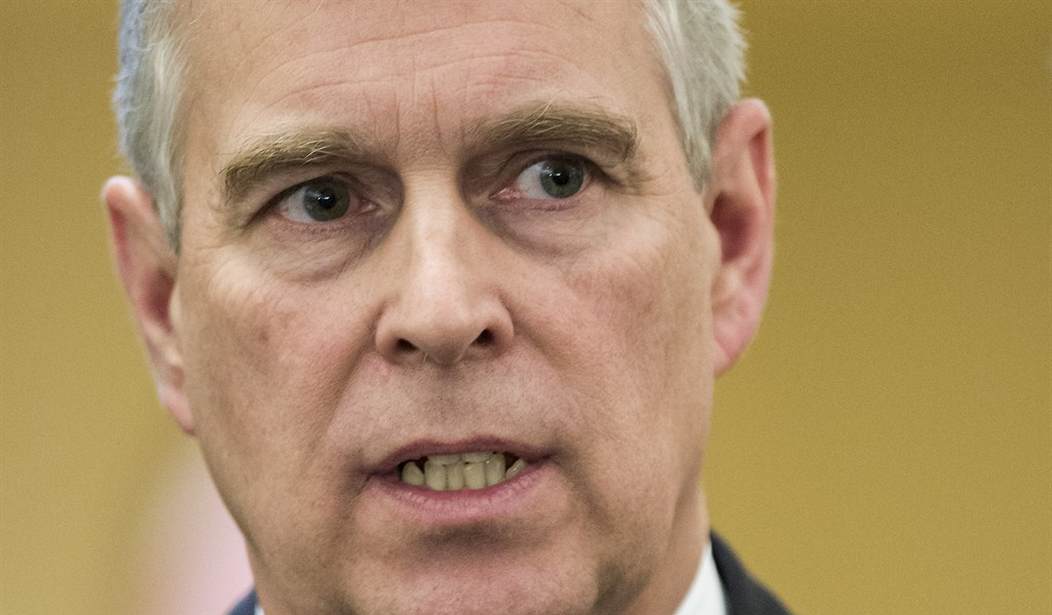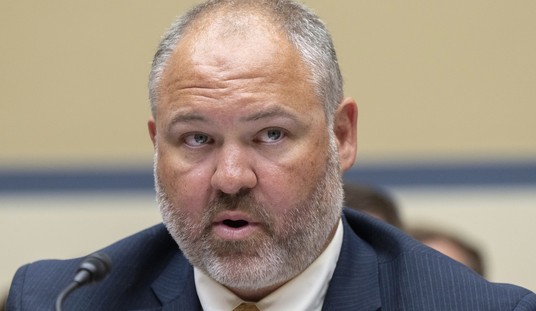Now that justice has caught up with Ghislaine Maxwell, many had hoped the same would happen with Prince Andrew. No one expects the US to prosecute a royal at this point, but the lawsuit from Virginia Roberts Giuffre certainly gas made Andrew sweat — figuratively speaking. (He claims an inability to sweat to contradict one of Roberts Giuffre’s allegations, a claim for which the plaintiff’s attorneys recently demanded medical substantiation, and for which Andrew has come up empty.)
However, perspiration may have just gotten mooted. A federal judge unsealed a $500,000 settlement that Jeffrey Epstein made with Roberts Giuffre in 2009, and its language appears to invalidate any attempt on her part to seek damages from any of Epstein’s pals:
Virginia Giuffre agreed not to sue anyone connected to Jeffrey Epstein who could be described as a “potential defendant”, a 2009 settlement of her Florida damages claim against the sex offender shows.
The document, disclosed by a New York court, reveals the financier paid her $500,000 (£371,000) to end her claim. …
That case never went to trial because on 17 November 2009 Jeffrey Epstein agreed to pay her $500,000 to stop it in its tracks. That deal was confidential until now – but has been made public because of its potential importance to the Prince Andrew case.
In the document, Ms Giuffre, also referred to by her unmarried name Roberts, agreed to “release, acquit, satisfy, and forever discharge” Epstein and “any other person or entity who could have been included as a potential defendant”.
Given Roberts Giuffre’s focus on Andrew over the last several years, the settlement would appear to include the royal degenerate in its protective language. The contract is relatively brief and its language seems pretty clear.
Jonathan Turley calls this an example of a “royal we” by Epstein, irony fully intended, and that it might be effective too:
One thing that the agreement does not include is a reference to “royalty.” Bizarrely, counsel for Prince Andrew claimed publicly that the agreement exempted “royalty.” The prince’s lawyer Andrew B. Brettler wrote that “because Prince Andrew is a senior member of the British royal family, he falls into one of the expressly identified categories of persons, i.e., royalty, released from liability under the Release Agreement, along with politicians, academicians, businessmen, and others allegedly associated with Epstein.”
Nevertheless, the absence to a reference to royalty does not matter if this is viewed as a Royal We provision. Epstein clearly wanted a complete and final settlement not only for himself but his friends.
Giuffre’s attorney David Boies has suggested that the agreement would not include Prince Andrew because he was not subject to any litigation or allegations in Florida where it was finalized. However, such settlements often extend beyond the state of execution and this agreement expressly refers to any actions that Guiffre could bring in “state or federal” courts.
While the U.S. Attorney’s office in Southern District of New York successfully argued that the actions of Florida prosecutors could not bind it, it is more difficult to argue that a comprehensive civil settlement does not bind a party who received half a million dollars in exchange for her consent.
As Turley writes, it’s tough to imagine that Epstein only meant for this settlement to apply in Florida, given the global nature of his sex trafficking enterprise. It’s equally difficult to buy that any such settlement including Roberts Giuffre would have excluded Andrew from that extremely broad “royal we.” Turley thinks Andrew has a pretty good shot at dismissal:
So the question is whether this is indeed a Royal We provision with “other defendants.” One thing is clear. Prince Andrew has a stronger basis for arguing that he was included in this sweeping provision than proving his earlier claim that he is incapable of being the sweaty person described by Giuffre on a dance floor at “Club Tramp.”
And that’s too bad, because in truth Andrew should be sweating this out for the rest of his life. No one’s buying his innocence claims, and even this would be just a technicality — and one with the implication that Epstein clearly knew that Andrew needed this protection in the first place. And Andrew’s desperate attempt to crawl into that circle of protection tells us all we need to know about his association with Epstein.









Join the conversation as a VIP Member